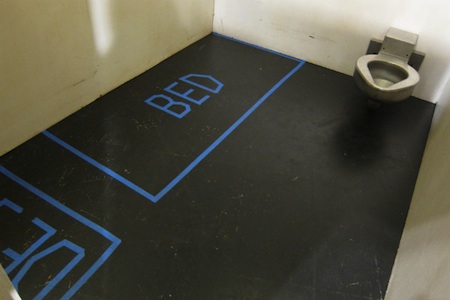New York State has agreed to sweeping changes that will curtail the widespread use of solitary confinement to punish prison infractions, according to court papers filed on Wednesday.
Under the agreement, New York becomes the largest prison system in the United States to bar the use of solitary confinement for disciplining prisoners under 18, according to the New York Civil Liberties Union, which represented the three prisoners whose lawsuit led to the agreement.
The agreement says that 16- and 17-year-old prisoners who are subjected to even the most restrictive form of disciplinary confinement must be given at least five hours a day of outdoor exercise and programming outside of their cells.
State correction officials will also be prohibited from imposing solitary confinement as a disciplinary measure for inmates who are pregnant and the punishment will be limited to 30 days for those are developmentally disabled, the court filing says.
The agreement also imposes “sentencing guidelines,” specifying the length of punishment allowed for different infractions and, for the first time in all cases, a maximum length that such sentences may run, the N.Y.C.L.U. said.
“New York State has done the right thing by committing to comprehensive reform of the way it uses extreme isolation, a harmful and inhumane practice that has for years been used as a punishment of first resort” in the state’s prisons, said Donna Lieberman, executive director of the civil rights group.
In the court filing, the Department of Corrections and Community Supervision says it “recognizes that disciplinary sanctions must never be arbitrary or capricious or overly severe and that a sound disciplinary system relies on certainty and promptness of action rather than upon severity.”
The agreement also calls for the N.Y.C.L.U. and the state to each designate an expert to assess current disciplinary practices in the state prisons and recommend further reforms.
If the reform process is successful, the lawsuit will be settled in two years, the civil rights group said.
The joint filing asks the judge, Shira A. Scheindlin of Federal District Court in Manhattan, to place the litigation on hold while the process takes place. The judge gave that approval on Wednesday.
The agreement calls for the creation of a new post of assistant commissioner and a separate research position to allow the corrections department to “oversee and monitor the disciplinary system” statewide, through data collection and tracking performance, with the goal of “promoting consistency and fairness” in the imposition of such discipline.
Taylor Pendergrass, the lead lawyer in the case for the civil liberties group, said several states, including Washington, Mississippi and Colorado, had begun to address the issue of how to reduce the use of solitary confinement; a Senate Judiciary Subcommittee is holding a hearing next week on the issue. He said that a handful of states have also banned or limited the use of solitary confinement for inmates under 18, in adult or juvenile detention facilities.
But given New York’s size and visibility, Mr. Pendergrass said, the agreement places the state “at the vanguard” of progressive thinking about how to move away from “a very punitive system that almost every state has adopted in one form or another over the last couple of decades.”
There are about 3,800 state prisoners currently being held in “extreme isolation” cells, known as special housing units or S.H.U.'s, according to the civil liberties group. The organization’s 2012 report, “Boxed In,” found that from 2007 through 2011, corrections officials issued such sentences about 68,000 times for disciplinary reasons. The most common infraction was failure to obey an order, which resulted in 35,000 such punishments, the data showed.
The average “extreme isolation” sentence was about five months, the report said, with nearly 2,800 sentences of a year or more.
Such prisoners are held in their cells for 23 hours a day, receive their meals through a slot in the cell door and are granted one hour of outdoor recreation in a “walled-in solitary pen,” the civil liberties group says.
Roughly half of such inmates are confined alone, while the other half are held with another prisoner in a cramped space about the size of a parking spot, the report says.
“Double-celled prisoners experience the same isolation and idleness, withdrawal and anxiety, anger and depression as do prisoners living alone in the S.H.U.,” the report said. But such inmates also must “endure the constant, unabating presence of another man in their personal physical and mental space,” it added.
